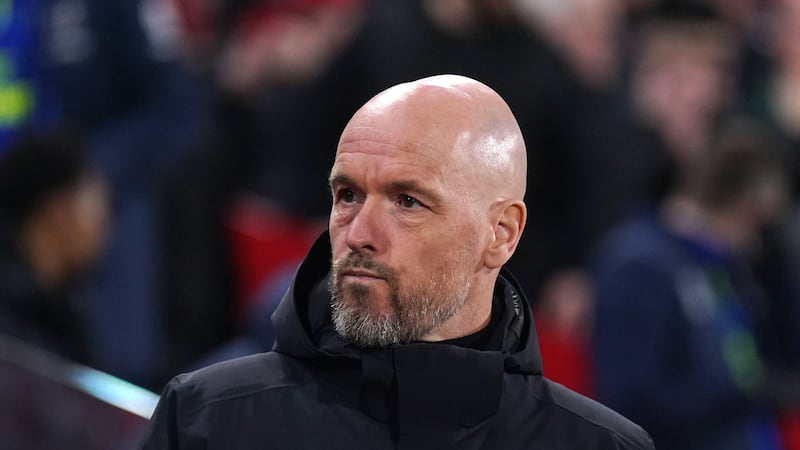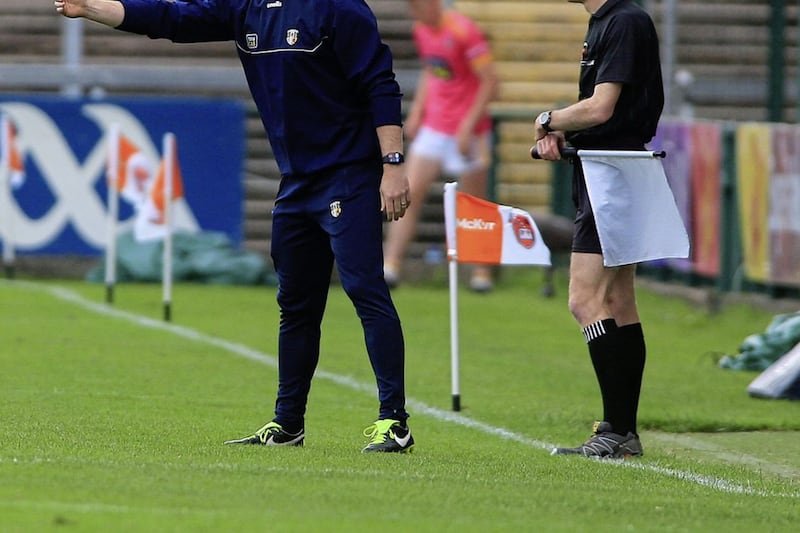LAST week I was quite worried about the potential impact of the new rules being proposed at Special Congress and the creation of a two-tier All-Ireland football Championship.
Obviously, I must not have been fully informed because, judging by the size of the voting majorities achieved by every one of the proposals, they were obvious and necessary changes duly reflected in their easy ratification.
My worries that these historic changes have been brought in without much real national awareness or proper analysis have only increased during the past week.
Across several conversations with a range of players and supporters, there was surprise when realisation dawned that these changes were not trial moves but would be a full part of the law across both club and county from next year and need to be viewed as every bit as standard in our games now as the prohibition on picking the ball off the ground.
As I alluded to last week, I really do struggle to see the need for the rules changes, especially the forward mark.
The game has changed significantly over the past year or two, yet all of this natural evolution appears to have been ignored.
The tactics of high presses and man-to-man marking right across the pitch were starting to be seen with regularity, along with a return to early long ball into full-forward lines.
The combination of such tactics, along with the more patient, nuanced play of zonal marking and slower build-up play, left the game at its most varied and interesting than perhaps at any other time in its history.
This was evidenced by a summer which had arguably more good games across both provincial Championships, Qualifiers and the All-Ireland series than any in the past 10 years.
I’m not for a minute saying it was perfect, nor always exciting, but it was certainly on an upward curve.
On the face of it, the new changes encourage longer kickouts and longer passes into forward lines. There’s nothing particularly wrong with that, but let’s remember that any team will look to optimise both the defensive and offensive aspects of their game.
Defensively, a simple starting point is to stop an opponent doing what they wish to do. If a team’s first choice on kickouts is to go long, try to shut that down by forcing or tempting them to go short. If a long ball into the forwards is a key tactic, then fill your defence with men to limit the opportunities for kicking.
True, a long high ball to a ‘Bomber’-type full-forward could still be won but do we want a game where that or slow lateral play are the two attacking options?
I enjoyed my time playing International Rules, but I always thought Gaelic’s fluid fast attacking play was superior to the stop-start nature of Australian Rules’ mark and free-kick.
The potential for AFL-like attacking play, a return to packed defences as an automatic go-to, or the loss of fluid attacks and scores from play, are big concerns and possible consequences of the rule changes.
The fact the decisions on the adoption of the rules were guided by debatable evidence from the National League trial period is a critical flaw.
In doing so, the fact that counties barely worked on the rules at all and thus no full consequences, never mind knock-on effects, could be gauged, was ignored while the positive aspects of the summer’s football, played under the old rules, must also have gone unnoticed. The whole analysis suggests a level of confirmation bias bordering on the absurd.
As the saying goes, though, it’s time to build a bridge. The decision is made and, while I have significant reservations, like everyone else I have to embrace the changes and get on with it.
The new rules will instigate a massive amount of coaching opportunities and tactical innovation in the game and those stuck giving out about them, like a bad refereeing decision, will be left behind.
Given that no coaches or players are experienced with the new rules, next year will be a massive challenge for all concerned.
The safe option will be to simply let the rules blend with current styles of play and let players get used to it over time. More significant risks and, for that matter, opportunities, will be present for those who more fully embrace the changes and with them a wholesale adaptation in style of play.
The game has gone through huge change over the last 20 years led by innovators like Mickey Harte, Jim McGuinness and, of course, Jim Gavin. Next year presents an opportunity for a step-change in our game. Who will be the new innovators to come up with tactics and systems that fully exploit the rule changes? Like them or not, they will make for fascinating times.
Despite my misgivings and the fear I have about the knock-on effects, I truly hope the changes have a positive impact. The game and spectators have watched some pretty poor, alien stuff over the past seven or eight years.
The game had already started to move towards a new era, and there were signs of really positive changes. It would be gutting if, in trying to enhance those changes, we end up setting the game back. We have decided to replace the game’s natural evolution with man-made changes. Only time will tell if that was an act of inspiration or not.
*****
THE two-tier matter is such a significant change that how it didn’t merit a full hearing at a proper Congress, especially one heard after the work of the fixtures review committee could be completed, beggars belief.
The cynic in me thinks that, having nailed his colours to the mast regarding it and making it a central aim of his presidency, John Horan was ensuring he was a man of his word by bringing a second tier to reality in double-quick fashion.
Not that I don’t see possible advantages with, and a future for, a second tier, but if we are asking half our counties to step out of the full All-Ireland Championship, surely at the very least, it should come with full details of calendar, coverage and rewards.
Instead, in place of the fairytale dream in every child, player and supporter about their team’s yearly pursuit of the Sam Maguire, we get a competition without even a name.
Regarding coverage, John Horan only said that he had received a text from RTÉ head of sport Declan McBennett suggesting the semi-final and final might be covered. That sums the thing up.
If it wasn’t so important for the counties involved, it would be laughable how rushed and incomplete the whole process has been.
Of course, it could work, but it seems such a leap of faith to take..
Even accepting Horan’s view of the importance of a second tier competition, which, given it’s promoted role of improving the level of ‘weaker’ counties, is critical indeed, then there is all the more reason to ensure proper groundwork and preparation is made to maximise its chances of success.
Otherwise we are just inaugurating a second, half-baked Tommy Murphy Cup and increasing the likelihood of failure and further damage to those counties he wants to help.







